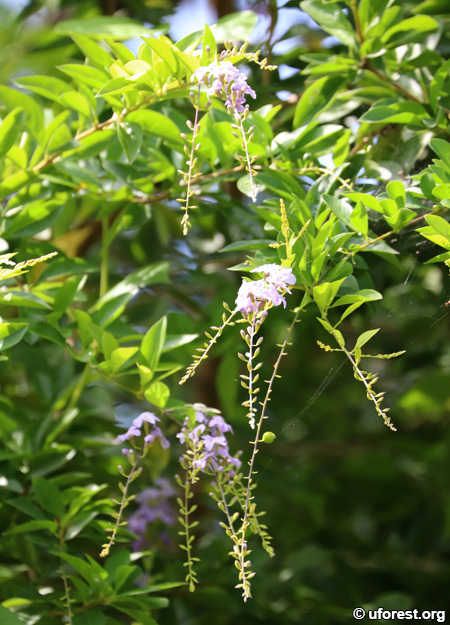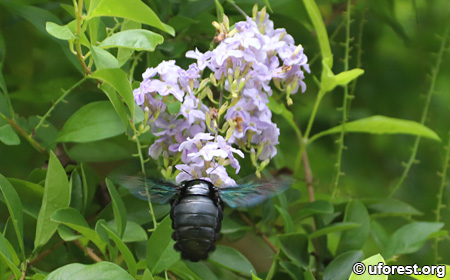Duranta erecta L.
| Etymology | Genus | After Castore Durante, 16th century botanist and papal physician to Sixtus V |
|---|---|---|
| Species | Upright, reference to plant unknown | |
| Family | Verbenaceae | |
| Synonyms | - | |
| Common Names | Golden Dewdrop, Skyflower | |
| Status | Exotic: Cultivated Only | |
| Form | Shrub | |
| Native Distribution | Tropical America | |
Diagnostics:
Duranta erecta is commonly cultivated as a shrub here. It flowers often and its splash of purple and orange fruits are easy to identify. The leaves are small and sometimes serrated. There are a number of cultivars, some with variegated leaves, or with different shades of white to dark purple for the flowers.
Interesting Facts:
The Golden Dewdrop is classified as a high risk weed in Australia, being "listed as one of the 50 most invasive species in New South Wales and among the top 100 most invasive plants in southeastern Queensland" (CABI, n.d.). The seeds are dispersed by birds, and the plant can form dense thickets, preventing establishment of native species. In addition, the leaves are fruits are said to be poisonous to people and animals, with a few incidents reported.

A casual growing individual growing along a forest in Punggol, 2019.

Inflorescences.

Leaf branching.

Leaf.

Carpenter bee visiting.

Orange fruits.
References
CABI (n.d.). Duranta erecta (golden dewdrop). Invasive Species Compendium, Centre for Agriculture and Bioscience International. https://www.cabi.org/ISC. Accessed on 20-Jul-2019.
Author: Siyang
Posted: 2019-07-21